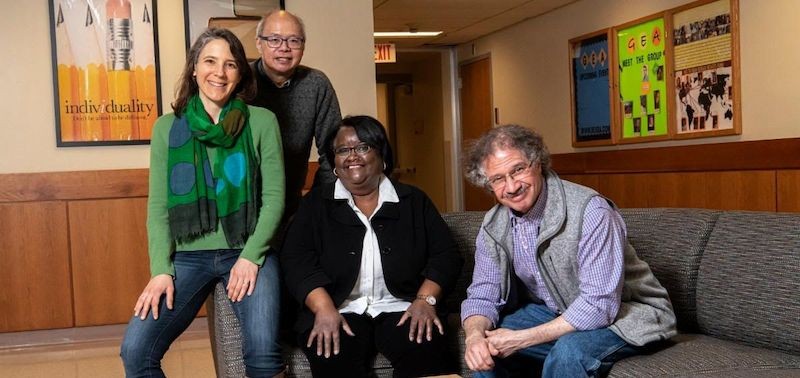

This project supported exemplary mathematics teachers in high need school districts. This project features university level mathematics educators and mathematicians working together, giving attention to content knowledge, pedagogical content knowledge and expertise in mentoring as well as the development of a professional community, while supporting secondary mathematics teachers. The project has been broadly successful: new mathematics teachers enter and stay, teachers with weak content knowledge improve dramatically, teacher-leaders emerge, and our experience provides lessons that may be helpful for other programs with similar concerns.
This study’s findings confirm results from previous research but also offers an alternative model of professional development, suggesting that a collective group of successful teachers with various skills and expertise coupled with a professional learning community can provide greater support to any single teacher than the traditional model of professional development.
For seven years, the professional learning community aimed to support eight Teaching Fellows (beginning teachers), who entered our program after finishing their Bachelor’s degree in mathematics or mathematics education, and eight Master Teachers (experienced teachers), who had their Master’s degrees. We attempted to create a learning community centered around secondary mathematics teaching where the teachers in our program, who were not all in the same school or district, would come together as mathematics teachers pursuing professional growth. The data sources are a) fieldnotes of practice seminars b) individual and focus group interviews, c) surveys, and d) observations of beginning teachers. Data generated was used to examine participants’ perceptions and constructions of their understandings regarding the effectiveness of a sustained professional learning community scaffold and teacher leaders in their development and understanding of content and pedagogical knowledge.
The National Science Foundation funded this project that supported the activities reported in this manuscript (Grant#1339601). The opinions expressed are solely those of the authors and do not reflect the opinions of the National Science Foundation.

Left to right: Juliana Belding, co-PI; CK Cheung, co-PI; Lillie R. Albert, PI; Solomon Friedberg, co-PI.
10,000
number of students impacted by study
16
teachers participated in the study
5
length of study (in years)